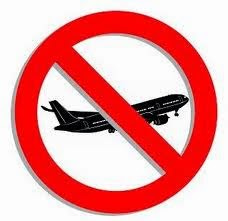DHS/TSA claim it’s “not appropriate” for a court to conduct its own independent review of secret no-fly list

It is “not appropriate” for a court to conduct its own independent review of evidence that the government asserts is protected by the state secrets privilege, attorneys for the government argued last week.
They were objecting to an order that was issued in a lawsuit challenging the constitutionality of the “no fly” list in the case of Gulet Mohamed v. Eric Holder. On August 6, Judge Anthony J. Trenga of the Eastern District of Virginia ordered the government to submit for in camera review a copy of all documents and testimony relevant to the case that it asserts fall under the state secrets privilege.
Instead, government attorneys asked Judge Trenga in an August 22 motion to reconsider his order “on the ground that the required submission [of assertedly privileged material] is not appropriate or necessary for evaluation of whether the state secrets privilege should be upheld or whether dismissal is necessary, in light of the information already provided to the Court on those issues.”
“The Government has provided… a thorough description of the harm to national security that would result from the disclosure of the privileged information. The additional submissions ordered by the Court would not assist in that determination,” they added.
But the kind of in camera review that the government attorneys objected to is actually among the “best practices” that should be adopted in all state secrets cases, according to a 2008 Senate Judiciary Committee report on the State Secrets Protection Act, a bill that was intended to regulate the use of the privilege.
The Act, introduced by the late Sen. Edward Kennedy, the late Sen. Arlen Specter, and Sen. Patrick Leahy, would have “instruct[ed] courts to avoid excessively deferential standards of review and to retain full control over privilege determinations.”
Among other requirements, the Act required that “The Government must make all evidence it claims is subject to the privilege available for the court to review…. If the Government refuses to turn over evidence or to provide a non-privileged substitute ordered by the court, the court will resolve the relevant issue of fact or law against the Government.”
The Act’s provision for in camera judicial review of privileged materials “makes crystal-clear that the court, not the executive branch, determines which items of evidence are privileged,” the Senate report said. “It requires the court to consider the actual evidence, rather than rely on Government affidavits or representations about the evidence, in making this determination.”
This is one of the steps needed to resolve “the crisis of legitimacy currently surrounding the state secrets privilege,” the Senate report said.
However, several Republican Senators on the Judiciary Committee disputed the need for the State Secrets Protection Act. They said in dissenting views appended to the report that the right balance had already been struck. The Act was never enacted into law and no other guidance on the use of the privilege has emerged from Congress.
The U.S. government is blacklisting people as terrorism suspects based on secret standards and secret evidence. People on government watchlists are questioned, harassed, detained, and even barred indefinitely from flying — and the government denies them any meaningful way to correct errors and clear their names. In an era of unprecedented government secrecy, every American should know this: The U.S. government’s massive and secret watchlist system is fundamentally broken.
“The news that the list is growing tells us that more people’s rights are being violated,” said Nusrat Choudhury, a staff attorney working for the ACLU’s national security project. “It’s a secret list, and the government puts people on it without any explanation. Citizens have been stranded abroad.”
“The government will not tell people whether they’re on the list or why they’re on it, making it impossible for people to defend themselves” Choudhury said.
“People who complain that they’re unfairly on the no-fly list can submit a letter to the Homeland Security Department, but the only way they’ll know if they’re still on the list is to try to fly again” she added.
According to former chief of the Terrorist Screening Operations center and now vice president with the Soufan Group, if a person is nominated to be on the no-fly list, but there is insufficient information to justify it, the Terrorist Screening Center downgrades the person to a different list.
“You can’t just say: ‘Here’s a name. Put him on the list.’ You’ve got to have articulable facts,” Reardon said.
In the meantime, the ACLU has put together a Know Your Rights resource for U.S. citizens and permanent residents who believe they have been placed on the No Fly List. These materials include procedures for people stuck abroad to follow so they can come home. (The procedures were put in place by the government only after we filed our No Fly List challenge.)
The ACLU has deep concerns about the adequacy of the government’s process and about how the government takes advantage of the leverage it has against even wholly innocent people it adds to the No Fly List, including by pressuring them to become government informants. So we’re also asking people who believe they’re on the No Fly List to help the ACLU monitor the government’s conduct by filling out this survey.
You can help by circulating all these materials as broadly as you can. The more we all know about the government’s unfair watchlist system, the more people wrongly caught up in that system are able to assert their rights, and the more the ACLU can continue to hold the government accountable for rights violations, the better off we all are.
http://fas.org/blogs/secrecy/2014/08/review-state-secrets/
https://www.aclu.org/blog/national-security/what-you-should-know-about-americas-secret-watchlists


